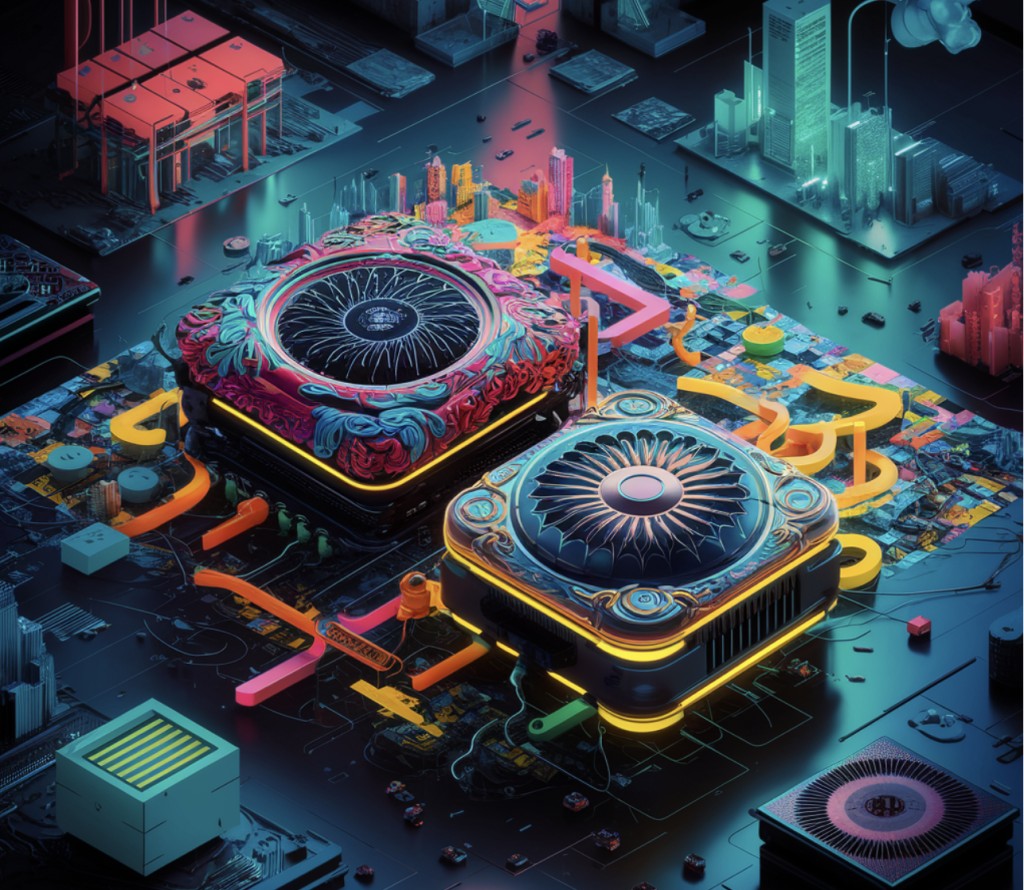Deep learning has dramatically transformed industries, from healthcare to autonomous driving. However, these advancements wouldn’t be possible without parallel developments in hardware technology. Let’s explore the evolution of deep learning hardware, focusing on GPUs and TPUs and what the future holds.
The Rise of GPUs
Graphic Processing Units (GPUs) have been pivotal in the deep learning revolution. Initially designed to handle computer graphics and image processing, GPUs are highly efficient at performing the matrix and vector operations central to deep learning.
Parallel Processing Capabilities: GPUs can execute thousands of threads simultaneously, making them ideal for large-scale and parallel computations in deep learning.
Economical Scaling: NVIDIA’s CUDA technology, which is used in many products, has made it easier for developers to scale deep learning models economically.
Versatility: Beyond deep learning, GPUs are versatile, supporting a broad array of computing tasks.
Introduction of TPUs
Google developed Tensor Processing Units (TPUs), which are custom-designed to accelerate tensor operations in neural network algorithms essential to Google’s AI services.
Optimized for Performance: TPUs are tailored for deep learning operations, offering faster processing times for training and inference than GPUs.
Energy Efficiency: TPUs are also more energy-efficient and crucial for reducing operational costs in large data centers.
Integration with Google Cloud: Google offers Cloud TPUs, making this technology accessible to developers and researchers worldwide.
Comparative Table: GPUs vs. TPUs
Beyond GPUs and TPUs
The landscape of deep learning hardware is continuously evolving. Here are some emerging technologies that could shape the future:
FPGAs (Field-Programmable Gate Arrays): Unlike GPUs and TPUs, FPGAs are programmable and can be reconfigured post-manufacturing, which provides flexibility for specific applications. They are especially useful for custom hardware accelerations.
ASICs (Application-Specific Integrated Circuits) are tailor-made for specific applications, offering optimal performance and energy efficiency. ASICs for deep learning are still in their early stages but hold great promise for future optimizations.
Neuromorphic Computing: This technology mimics the human brain’s architecture and is expected to reduce power consumption while drastically increasing processing efficiency.
Challenges and Future Directions
While the advancements in deep learning hardware are impressive, they come with their set of challenges:
High Costs: Developing custom hardware like TPUs and ASICs involves significant research, development, and manufacturing investments.
Software Compatibility: Ensuring that new hardware works seamlessly with existing software frameworks requires ongoing collaboration between hardware developers, researchers, and software programmers.
Sustainability: As hardware becomes more powerful, it also consumes more energy. Making these technologies sustainable is crucial for their long-term viability.
Conclusion
Deep learning and the hardware that powers it continue to evolve. Whether through improvements in GPU technology, wider adoption of TPUs, or groundbreaking new technologies like neuromorphic computing, the future of deep learning hardware looks exciting and promising. The challenge for developers and researchers is to balance performance, cost, and energy efficiency to continue driving innovations that can transform our world.
The post Advancements in Deep Learning Hardware: GPUs, TPUs, and Beyond appeared first on MarkTechPost.
Source: Read MoreÂ

